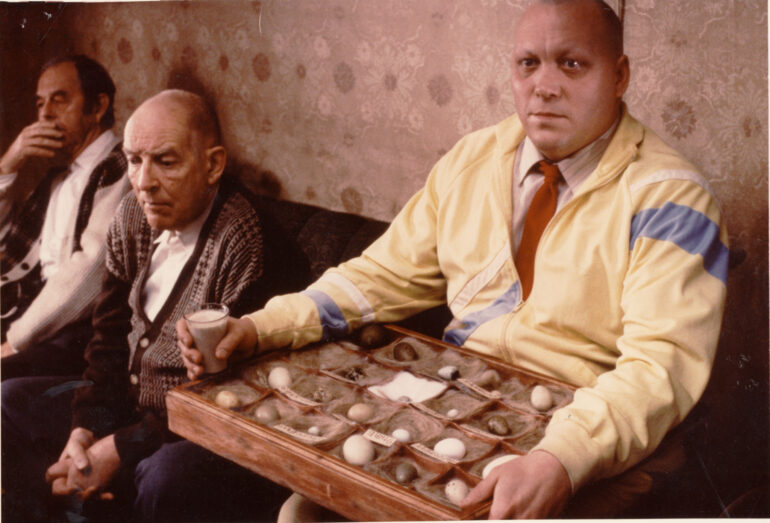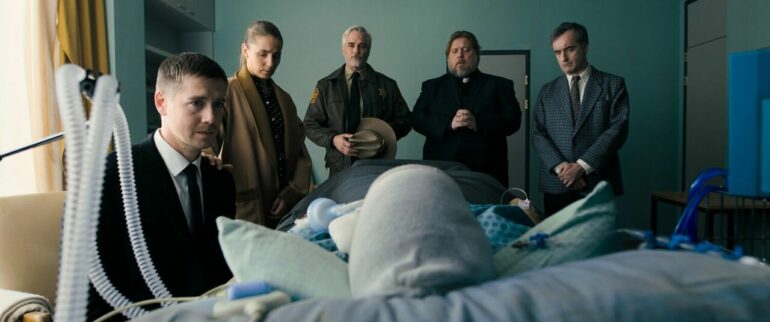Written by: Jan Lumholdt
06.11.25
Honoured at the 67th Nordic Film Days in Lübeck, Bent Hamer adds another highlight to a career that spans five decades, three Oscar submissions, two Best Film Amandas, and a lost, but found, film print.
“Let’s hope they don’t regret it.”
So says Bent Hamer on the notion of being the honorary Homage recipient at the 67th Nordic Film Days film festival in Lübeck, playing out November 5-9.
With a career spanning five decades, this prodigy of the young mid-1990s Norwegian film wave has another immediate reflection on this “lifetime achievement”-like recognition:
“One certainly hopes one has the best ahead of oneself, right? True or not… But I find it very gratifying, of course, and humbling. Clearly, I never became another first-feature director who then disappeared.”
“Seit seinen ersten Kurzfilmen ist Bent Hamer Stammgast auf dem Nordischen Filmtagen,” reads the hearty Lübeck press release, and Hamer has indeed very much been a returning regular, ever since his early shorts.
“Ever since Jan Erik Holst at the NFI got the idea to show one of my short films to Andrea Kunsemüller, the director in the late 1980s-early 1990s. It was Longitude Latitude (Makrellen er kommen, 1989) with Per Oscarsson. I had to go to Torp airport in Sandefjord and get a VHS cassette sent to Jan Erik. He showed it, and she wanted it.”
“Then I was there with another short, Sunday Dinner (Søndagsmiddag) in 1991. Back then you brought the film reel yourself – you only had one print. We showed it, and then we went to a bar, where I lost that one print. Next year I wasn't there, but people from the NFI found it – at the same bar!”
When Eggs (1995), Hamer’s first feature, played Lübeck, it won the NDR Film Prize and the Baltic Film Prize. It was entered at Cannes, and won the national Amanda Award for Best Norwegian Film of 1995. The story about two elderly bachelor brothers and the disruptive arrival of an unknown son was a breakthrough, also on a regional level, for a certain mood, or even genre.
“As one of the trade headlines read at the time: ‘Stories from Above the Melancholy Vodka Belt’.“
Coined by the well-weathered trade reporter Jørn Rossing Jensen, the idiom describes a type of Nordic cinema that has flourished since the 1990s, with kinships across the borders. From Hamer’s Norway via Roy Andersson’s Sweden and then eastwards to Aki Kaurismäki’s Finland, one could draw a literal “belt” (similar tones are also found in Anders Thomas Jensen’s Denmark, albeit without a state alcohol monopoly).
Moreover, this brand of melancholic vodka has been an export success, bringing widespread repute of a not that cheerful but endearingly human characteristic. Hollywood will nominate the films for Oscars from time to time, while the grand European festivals seemingly have a standing invitation for these filmmakers’ works.
There was also talk of a “Norwave” around the mid-1990s, Hamer remembers.
“We came in a little cluster. There was Marius Holst with Cross My Heart and Hope to Die (Ti kniver i hjertet, 1994), Hans Petter Moland with Zero Kelvin (Kjærlighetens kjøtere, 1995), Erik Skjoldbjærg with Insomnia (1997), and Pål Sletaune with Junk Mail (Budbringeren, 1997). This can happen in a small country like ours, where there’s another wave right now. It can take off quickly, and then stop, just as quickly.”
That being said, Bent Hamer’s career has been consistent and lined with highlights. Three of his films, Kitchen Stories(Salmer fra kjøkkenet, 2003; that year’s Best Film Amanda), O’ Horten (2007) and 1001 Grams (1001 Gram, 2014), have all been submitted for the Oscars. In Cannes and related arenas, he’s made new contacts and friends, like the legendary Swiss sales agent Christa Saredi, who quite organically added him to her “stable” of directors with surnames like Haneke, Jarmusch, Friðriksson and Kaurismäki, or American producer Jim Stark, who asked him if he would like to do something in English, and if so, what.
“I‘d recently read Bukowski, so why not Post Office or Factotum? ‘I’ll check,’ Jim said. Factotum was available. I got really nervous. And little by little, it started to grow on me…”
Factotum (2005) and his most recent film The Middle Man (2021), both produced by Stark in collaboration with Hamer’s company BulBul Films, constitute his “international” output.
“Yes, I’ve made two of those, both with stories I would get something out of. After being submitted for the Oscars, I’ve gotten a pile of scripts sent to me, without ever asking, mind you, and frankly they’ve been utterly uninteresting. So it’s been more natural, especially since I write myself, that I choose themes from my own area. After all, I’m Norwegian, and this is what I know well.”
Hamer’s home and HQ is his birth town Sandefjord on the western shore of the Oslo Fjord, about a two-hour ferry ride from Sweden.
“I’ve lived in Oslo and in Stockholm, where I went to film school, but Sandefjord is where I'm from, since generations, so it's like, yes, that's where it’s ended up, and it fits very well.”
Do you think this has had significance, for your personality and creativity?
“Completely certainly, as so many other things... I’ve never been part of any ‘milieu’. Rather, I’ve been ‘shielded’, dependent on my stories.”
As a Homage recipient, one should assume an “auteur” status on your side. Could you try to define your own vision, if possible?
“Well, I wasn’t given a camera at the age of six. I’ve sailed and I’ve played football. But I have an observational ability, and a yen for expression. That combination, I think, is what took me to film. When you can’t paint and don’t have the courage to write a book, you can go for a medium with bits of several different art forms – which goes by the name of film.”
You direct, write, cast, and produce. What part of the filmmaking process do you find the most rewarding?
“I’d have to say the writing, producing, shooting, and post-production – the fact that I don’t have to do just one and the same thing all the time. I like variation. All this may take a little extra time, and I’ve been told I should have made more films over the years, but it’s just not my rhythm. To me, it’s like farming: You sow, you harvest. It’s a full journey, and I like every part.
To read more about Nordic Film Days: CLICK HERE.


